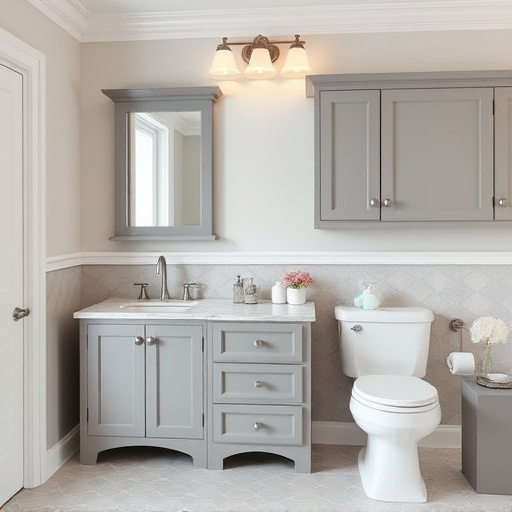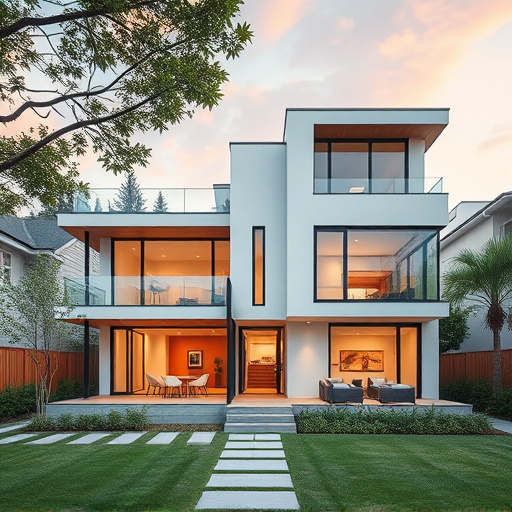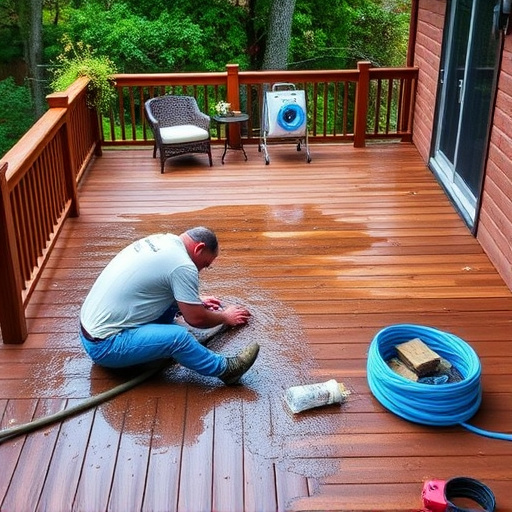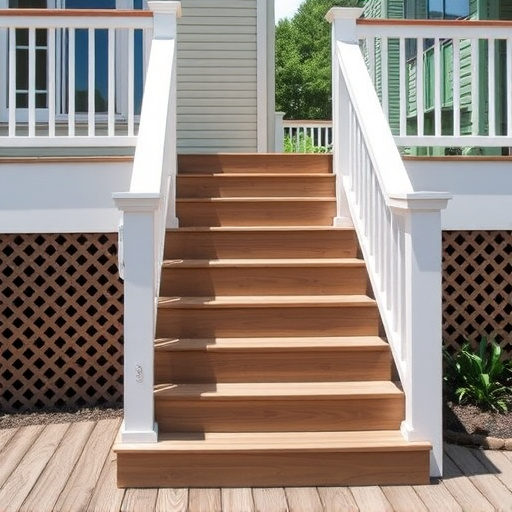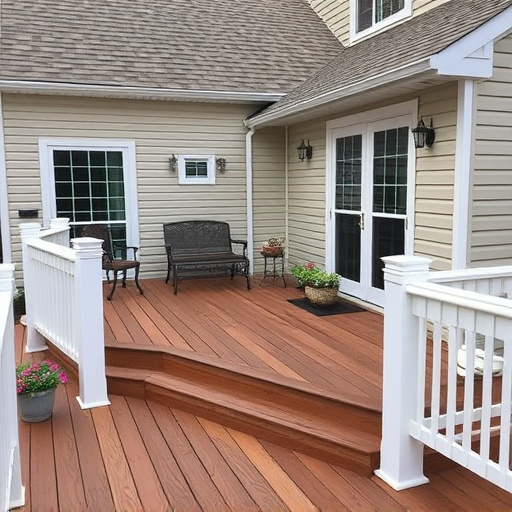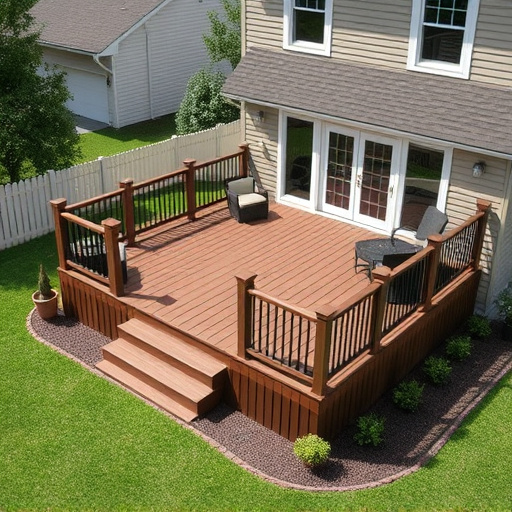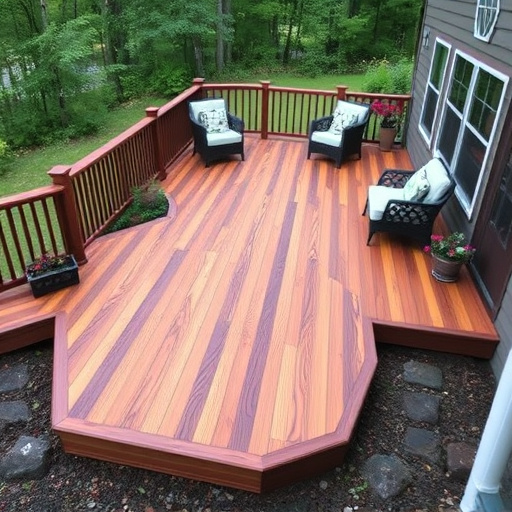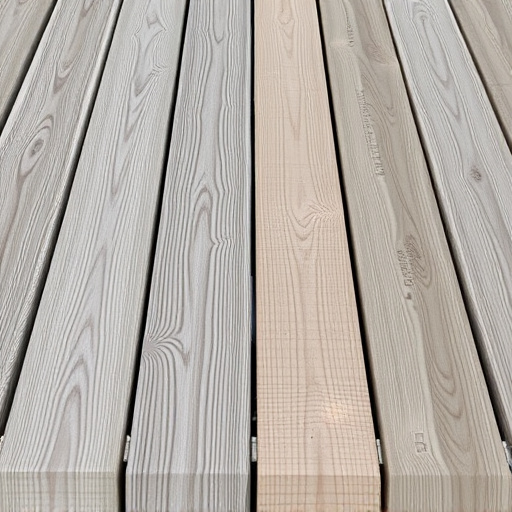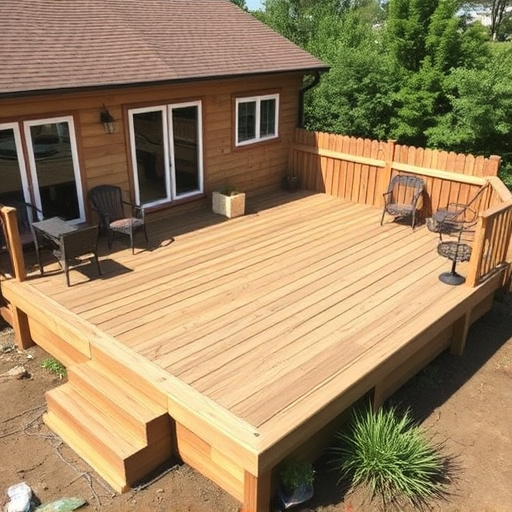Designing a custom deck requires careful consideration of unique factors like traffic flow, weather exposure, aesthetics, and integration with existing structural elements. Suitable flooring options range from natural wood (demanding maintenance) to low-maintenance composite decking and durable stone tiles. Weather patterns, intended use, budget, and personal preference guide the selection of slip-resistant, textured surfaces for safety and visual appeal in high-traffic areas, catering to both residential and commercial needs.
Creating a custom deck is an exciting project, but selecting the right flooring can be daunting. This guide helps you navigate the process, ensuring your deck reflects your unique style and serves as a vibrant outdoor living space. We’ll explore various flooring options tailored for custom decks, from durable wood to innovative composites, guiding you through essential factors like weather resistance, maintenance, and aesthetics. Get ready to transform your vision into a reality with the perfect deck flooring choice.
- Understanding Your Custom Deck's Unique Requirements
- Exploring Popular Flooring Options for Outdoor Spaces
- Factors to Consider When Selecting the Best Flooring for Your Deck
Understanding Your Custom Deck's Unique Requirements
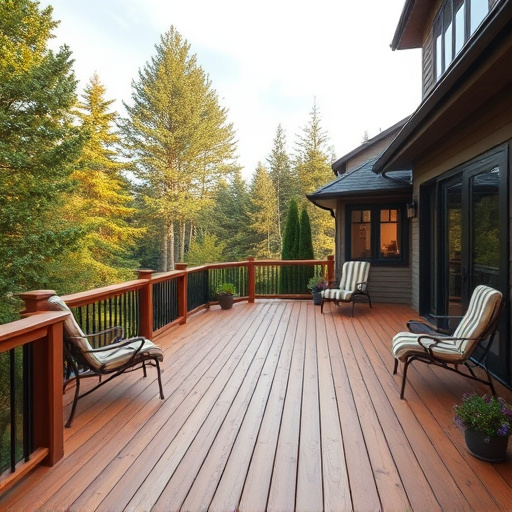
When designing a custom deck, understanding its unique requirements is paramount to making informed flooring choices. Factors like traffic flow, exposure to weather, and desired aesthetics play a significant role in determining the most suitable flooring option for your outdoor living space. For instance, if your custom deck sees heavy foot traffic, durability-focused materials such as composite decking or stone tiles might be preferable over softer options that could wear down quickly. Similarly, consideration of environmental elements like sun exposure and moisture is crucial; natural woods may require additional sealing and maintenance to withstand these conditions.
Moreover, the integration of your custom deck with other structural elements of your property should factor into your decision. For example, if you’re connecting it to a house with existing roofing solutions or professional siding, ensuring that new flooring complements these materials is essential for maintaining a cohesive look. Commercial siding, while not typically associated with decks, could be a design consideration for larger, more industrial-style decks that blend with exterior commercial spaces. Ultimately, recognizing the unique needs of your custom deck will guide you in selecting a flooring option that both enhances its functionality and visual appeal.
Exploring Popular Flooring Options for Outdoor Spaces
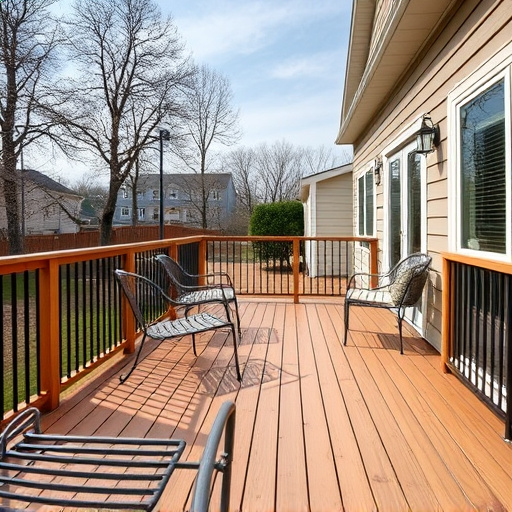
When it comes to flooring a custom deck, outdoor spaces offer unique challenges and opportunities. Among popular choices, natural wood stands out for its timeless beauty and ability to weather various climates. However, traditional decking materials may require ongoing maintenance like staining or sealing. For low-maintenance alternatives, composite decking has gained favor due to its durability and resistance to rot, mold, and insects. This eco-friendly option mimics the look of wood without the need for frequent upkeep.
Beyond conventional options, outdoor enthusiasts are exploring innovative flooring solutions such as tile and stone. These materials provide exceptional durability and visual appeal but can be more expensive and challenging to install. For commercial siding installation or residential siding projects, brick pavers offer a stylish and long-lasting choice, adding character to outdoor spaces. Ultimately, the best flooring option depends on personal preference, budget, and the desired maintenance level for your custom deck.
Factors to Consider When Selecting the Best Flooring for Your Deck
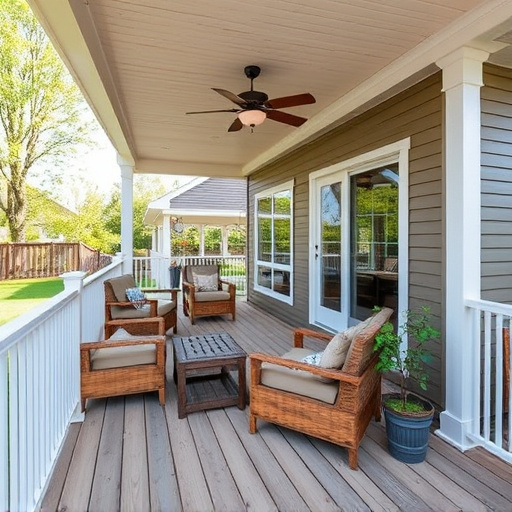
When selecting flooring for your custom deck, several factors come into play to ensure a durable and aesthetically pleasing finish. Firstly, consider the deck’s location and exposure to weather conditions. Outdoor flooring must be able to withstand varying temperatures, rain, snow, and UV rays from the sun. Natural materials like wood or stone are excellent choices but require regular maintenance. On the other hand, composite decking offers low-maintenance benefits while mimicking the look of natural materials.
Another crucial aspect is traffic flow and intended use. High-traffic areas may need more robust and slip-resistant options to prevent accidents. Residential siding and commercial siding options often have different requirements; residential decks might focus on aesthetics and comfort, while commercial spaces demand heavy-duty flooring capable of handling frequent footfall and potential weight loads. Textured or grained surfaces can provide better traction, especially during wet conditions, ensuring safety for users enjoying their custom deck space.
When choosing flooring for your custom deck, consider its unique requirements, explore popular outdoor options, and weigh factors like durability, maintenance, cost, and aesthetics. By doing so, you’ll enhance both the functionality and appeal of your outdoor living space for years to come. Remember that the right flooring choice can transform your custom deck into a vibrant, inviting oasis where folks will want to gather, relax, and enjoy the outdoors.

